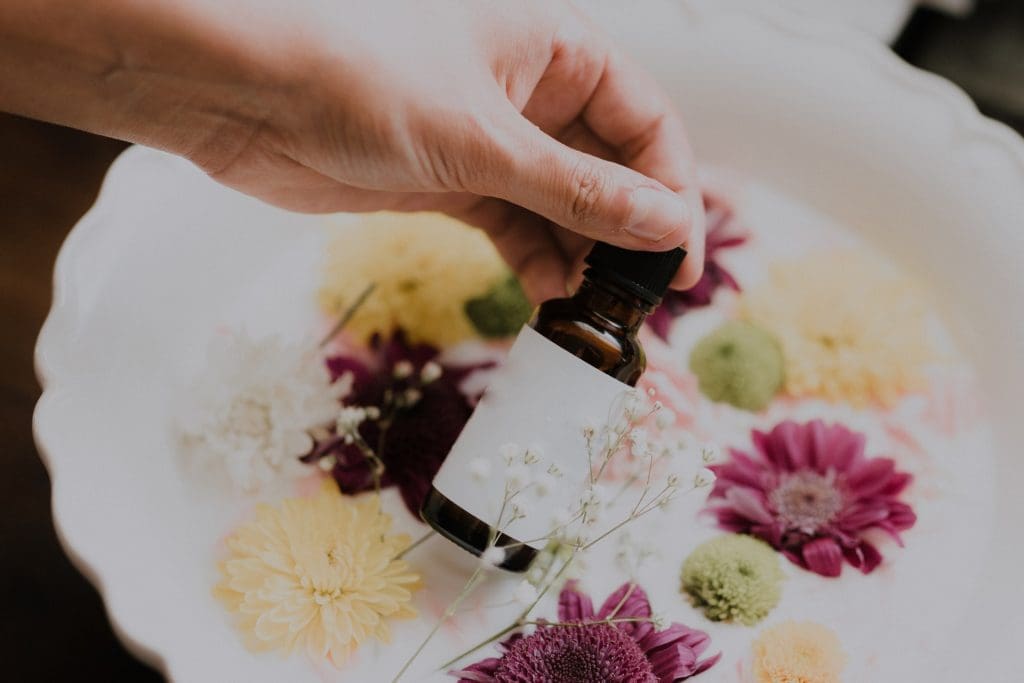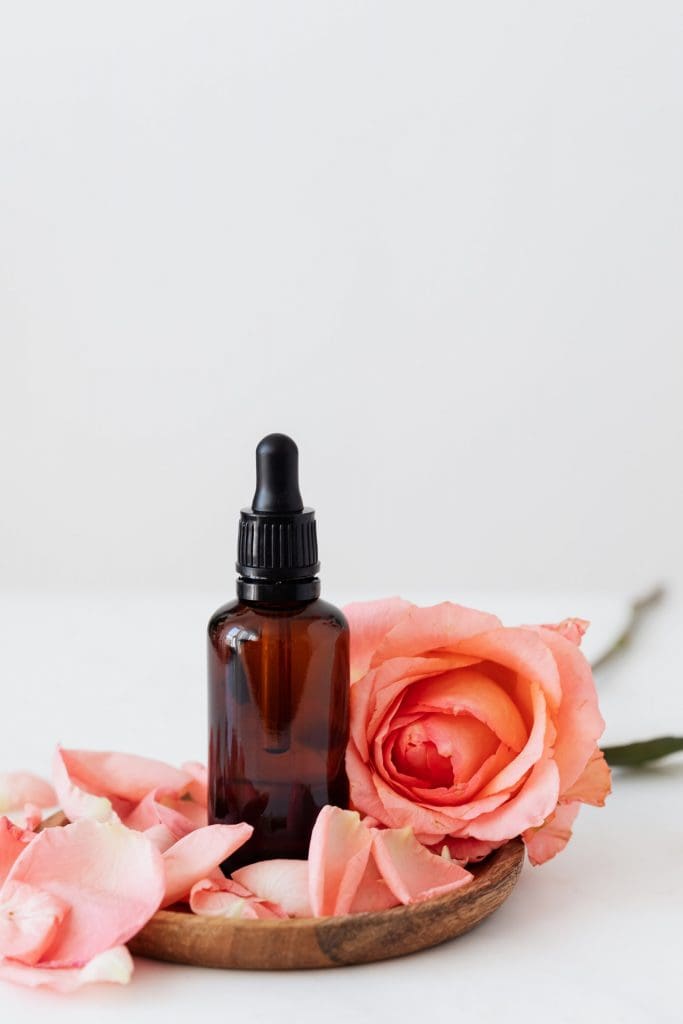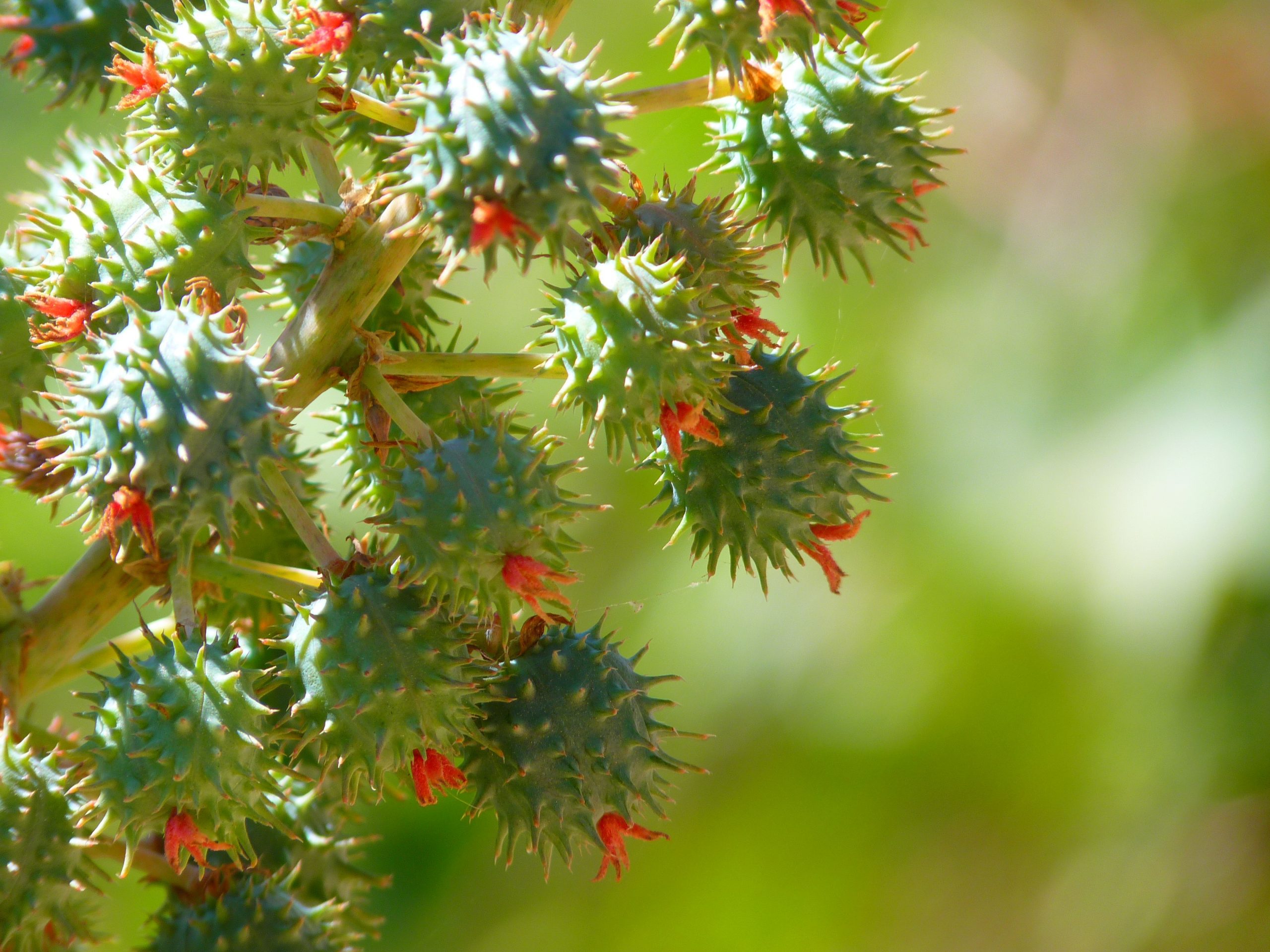Many people spend their whole lives searching for the perfect hair care regime. Sometimes it’s hard to know what’s right for your individual hair type. It can get overwhelming when you’re trying to sift through the many recommendations of cosmetic professionals and amateurs. However, if you’ve done even the smallest amount of research into hair products, there’s likely one ‘miracle’ cure that keeps appearing. Popular with hairdressers and beauty vloggers alike, the internet is full of testimonies of people swearing by castor oil. It can be used for a variety of hair types with a long list of supposed benefits. Although not supported by scientific evidence, countless first-hand accounts confirm the effects of castor oil on hair.
Castor oil is a vegetable oil that comes from seeds in the castor bean, or as it’s scientifically known, ricinus communis. The plant originates from the south-eastern Mediterranean Basin, Eastern Africa, and India. In the last few hundred years or so, it has been cultivated elsewhere in the world, such as in Europe and North America. Each seed contains between 30%-50% oil, which can be extracted using mechanical pressing or roasting methods. The oil contains vitamin E, fatty acids, and minerals, all of which have various benefits.
There are two types of castor oil. The first is yellow castor oil, which is made without the use of heat and is cold-pressed. The second is black castor oil, which is produced when the castor beans are roasted. Castor oil can be beneficial for all different hair types.
Table of Contents
What can castor oil do for your hair?
Castor oil has a long list of benefits for your hair, such as improving growth, keeping hair soft and hydrated, and preventing hair loss.
Castor oil can also help improve your hair’s overall health by preventing split ends and reducing breakage.
Carry on reading if you’d like to know the possible benefits of using castor oil in your hair care routine.

Improve hair growth
The most well-known use for castor oil is the promotion of hair growth. The age-old remedy has been used all over the world, most predominately in Jamaica, where the product Jamaican black castor oil has been exported all over the world.
While there isn’t any scientific evidence to actually support the hair growth theory, there is still hope. The multiple health benefits that castor oil can give your hair are all essential to longer hair. Having hydrated, strong hair will prevent breakages, which will get you to your desired hair length in no time.
Many people choose to apply castor oil as a deep conditioner overnight. You can cover your hair in the oil and wrap it in a towel or shower cap to protect it. Others choose to massage the oil into their scalps and then rinse it out straight away. There are no right or wrong ways to apply the oil, although it’s important to remember that a little goes a long way. Over oiling your hair will result in a greasy, matted mess. Test the levels of castor oil that your hair can withstand by building up the application over a period of time. You can always increase the frequency of the application if you do not see any immediate results.
Before applying castor oil, it’s important to do a patch test to check if you have any reactions. The oil can irritate the skin, which can then lead to further dryness and sensitivity. Apply a small amount of castor oil onto your wrist or side of your elbow and leave it at least 24 hours to check for any reactions. Consult your doctor or a medical professional if you have any concerns.
Not only is castor oil good for your hair, but you can also apply it to your eyebrows and eyelashes. It won’t promote hair growth, but castor oil will help control the moisture and pH levels. This might lead to the appearance of growth due to the fullness of healthy hair.
The best castor oil to use on your face is pure and organic without blending with other ingredients. Different oils might irritate and result in inflamed skin. If used correctly, castor oil has the potential to reduce swelling and puffiness on other areas of your face. It can also reduce the size of eye bags and pimples.
For best results, gently remove all makeup and apply the castor oil to your eyebrows using a cotton swab. Massage the oil into your eyebrows so that they are fully coated. For complete coverage, swipe along the hair’s natural direction of growth from the center of your forehead out and then back again.
It’s usually better to put the oil on just before bed to stay put overnight. Wash off the oil in the morning using water or a gentle cleanser.
Only use the oil a few times a week, to begin with, until you can be sure that there’s no irritation. Once you’ve been using the castor oil for a while with no visible signs of damage, you can start applying the oil to your eyebrows daily.
When applying castor oil to your eyelashes, make sure that all traces of mascara have been removed. Dip a clean mascara wand (otherwise known as a spoolie) into castor oil until it is thinly coated. Gently trace the wand along your upper lash line. If any oil gets into your eye, rinse immediately. Although castor oil won’t magically improve the growth speed, it will leave your eyelashes conditioned and stronger, which will give the appearance of fuller, longer lashes.
Both methods may take a few weeks before you see any visible effects.
Prevent moisture loss
Castor oil contains fatty acids, which are very good at nourishing hair follicles. The oil coats the outer layer of the hair and helps prevent them from becoming damaged. The cuticles of your hair can become damaged due to heat styling or dyeing, but castor oil can help repair them through hydration.
In basic terms, the oil protects your hair and stops it from becoming dull or frizzy. One of the fatty acids that castor oil contains is ricinoleic acid, which is also an anti-inflammatory. It can help reduce sensitivity to your scalp. Ricinoleic acid is also a natural humectant, which means that it retains and preserves moisture. The acid additionally increases blood flow in the scalp, which promotes healthy and longer hair. Last but not least, ricinoleic acid has anti-bacterial and anti-fungal properties and can help balance your scalp’s pH levels. All of this can help ease symptoms of a dry and itchy scalp.

Refined castor oil loses most of its ricinoleic acid due to the chemical extraction and bleaching process. For this reason, it’s better to use virgin organic oil for hair care. Refined castor oil is more suited to other uses such as cooking and lubrication in motor engines.
For thinner hair types, it’s not recommended to apply the oil more than twice a week as you could end up over-moisturizing your hair. When trying new hair products, it’s better to learn what your hair likes rather than trying to copy what an expert says. There are many videos and tutorials online to help advise you on the different application methods to try.
It’s important to remember that castor oil is very sticky and thick. If using it regularly in high volumes, you will need to use a clarifying shampoo to rinse out the oil and allow your hair a chance to balance out its levels of hydration. It may take a few washes before you feel that you have got rid of all of the castor oil.
Generally, if you have thinner, finer hair, Jamaican black castor oil isn’t a recommended option because the heavier substance has more chance of leaving your hair slick and greasy. For thinner hair, experts recommend that you use yellow castor oil as this is lightweight. However, if your hair is thick and coarse, Jamaican black castor oil will leave your hair hydrated and shiny. If you’re skipping a wash, you could apply a few drops of castor oil to your fingers and gently massage it into your scalp. Not only will this hydrate your head, but the massage will encourage blood flow.
The process of making black castor oil can vary and produce different results. Jamaican-made oil generally contains more ash than its Haitian counterpart. Jamaican black castor oil also has lower water content and less ricinoleic acid.
It’s worth noting that some brands pitch themselves as ‘Jamaican’ or ‘Haitian’ black castor oil, despite not being made in those countries. For authentic Jamaican and Haitian black castor oil, check the label on the product to see the listed country of origin.
A moisturized and hydrated scalp will help your hair increase its shine and make it more glossy. To see any noticeable results, it’s best to apply castor oil to your hair two to three times a week for at least three months. As castor oil can stain, use an old t-shirt to help prevent any spillages.
If your hair is becoming too greasy, dilute the mixture with other oils and use it sparingly.
Help with dandruff
There’s no scientific evidence that castor oil can help with dandruff, but many find that the moisturizing properties stop their scalps from becoming dry and irritated. It’s better to use cold-pressed, organic castor oil. Pure castor oil can also irritate certain scalps, so it’s worth diluting the oil if you’re prone to sensitive skin. The consistency might seem too thick and sticky on its own, so many people prefer to mix castor oil with other forms of oil, such as coconut oil, olive, or jojoba. These oils will also add a pleasant smell, which is always a bonus in hair care.

You can mix a few drops or a teaspoon of castor oil with your conditioner to help keep your scalp hydrated through the warmer months. Leave the conditioner in for between 10-15 minutes to get the full benefit and then comb through and rinse as usual. For a deeper cleanse, mix castor oil with a couple of drops of rosemary oil and a teaspoon of almond oil. Apply the mixture to the ends of your hair and scalp. Leave the mixture on overnight, and then rinse off in the morning.
If applying a large amount of castor oil regularly, it’s a good idea to perform a monthly detox wash so that your hair can be refreshed. Instead, use a clarifying shampoo and wash to rid your hair of the oil build-up. It may take a few attempts to wash the oil out with normal shampoo, which can actually reverse all of the hard work that the castor oil has done on your hair. Warm water is better at removing oil because cold water may react with the oil and make it stick to your hair. After using the shampoo, add a dollop of conditioner to your hair and massage through. Rinse thoroughly until you feel that the oil has been washed out completely.
Castor oil might not be the cure for every dandruff sufferer, so it’s worth giving it a test run before you fully incorporate the liquid into your hair regime. Dandruff can be caused by several reasons, which is why a moisturized scalp won’t necessarily lead to the end of the scaly flakes. In some instances, the application of castor oil could even make your condition worse. If you find that your scalp is becoming irritated or you notice an increased amount of dandruff, stop using the oil immediately and rinse any remaining castor oil out with your usual shampoo and conditioner.
Prevent hair loss
If you are experiencing drastic hair loss or thinning, it is advisable to speak to your doctor. However, castor oil can prevent hair loss on a smaller scale by making the strands stronger and preventing breakage. Castor oil helps improve each strands’ flexibility, which will prevent breakage and split ends.
One of the main causes of non-medical excessive shedding is from tight hairstyles, such as ponytails. Using the oil regularly will make your hair softer and more pliable because the moisture levels are kept up. The hair won’t be as brittle and dry, which will protect the hair from split ends or unnecessary breakage. To help with fly-away hair, it’s useful to apply a few drops of castor oil to your fingertips and work through your hair when styling. For best results, hair experts suggest letting the oil heat up in the palm of your hands for a few moments beforehand.
You can also use castor oil in preparation for brushing, as the oil will detangle your hair and prevent strands from getting caught and ripped out. Apply a few drops of oil to your roots and tips and disperse using a wide-tooth comb. Gently work through any knots and tangles until your hair feels smooth.
Castor oil is made up of vitamins, fatty acids, and antioxidants, which all assist in regaining the hair’s strength and adding another layer of protection to work alongside your body’s natural defenses. Castor oil contains 18 fatty acids, all of which have different properties and health benefits for your hair. 90% of the oil is made up of Ricinoleic acid, which has been mentioned previously in the article. Oleic acid makes up around 2% to 6% of castor oil and is responsible for the oil’s ability to control water loss and keep your hair soft and flexible. Stearic acid conditions and protects hair, which will leave you with a clean and healthy scalp.
Consider applying a castor oil-infused hair mask before or after shampooing for hair that is particularly damaged. Mix the castor oil with oils such as almond or rosemary to really penetrate the hair follicles and nourish the roots. Some masks can be left on overnight, but DIY recipes and shop-bought products should include further instruction.
Thicker hair can withstand hair masks weekly, but thinner hair should only be treated once every month. It’s better to find out what works for your hair by experimenting with tentative usage and amounts. If you find that your hair has become too greasy, use a clarifying shampoo to detox and begin the process again.
The anti-bacterial and anti-fungal properties of castor oil will help protect your scalp and hair. The chance of hair loss from infections (which are more common than you might think) will reduce over time. The anti-inflammatory properties aid irritated skin, which will promote growth from otherwise damaged hair follicles. It won’t speed up the overall growth rate, but your hair may feel fuller and thicker due to the reparation of the roots.
Castor oil might not be the hair savior that many make it out to be, but it’s worth taking the time to see what works for you. With a bit of experimenting, you could soon find yourself the proud owner of a glossy and healthy head of hair.
Featured Image by Pixy.org




